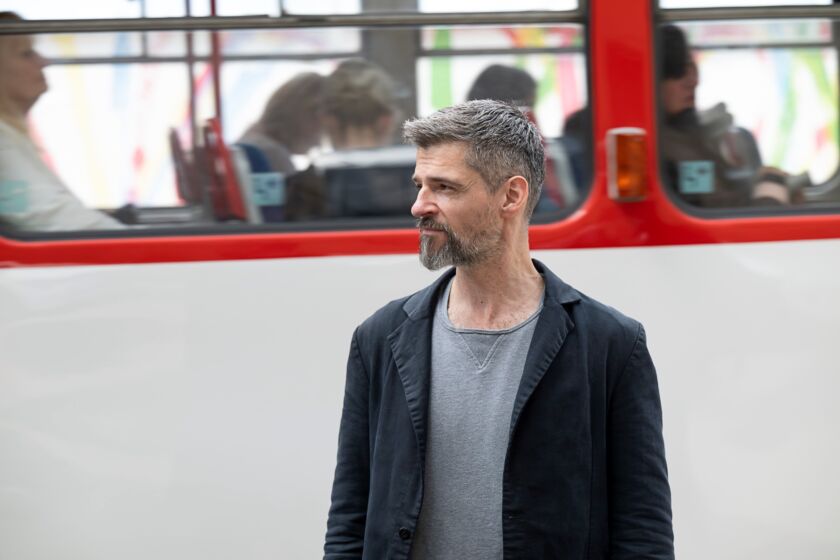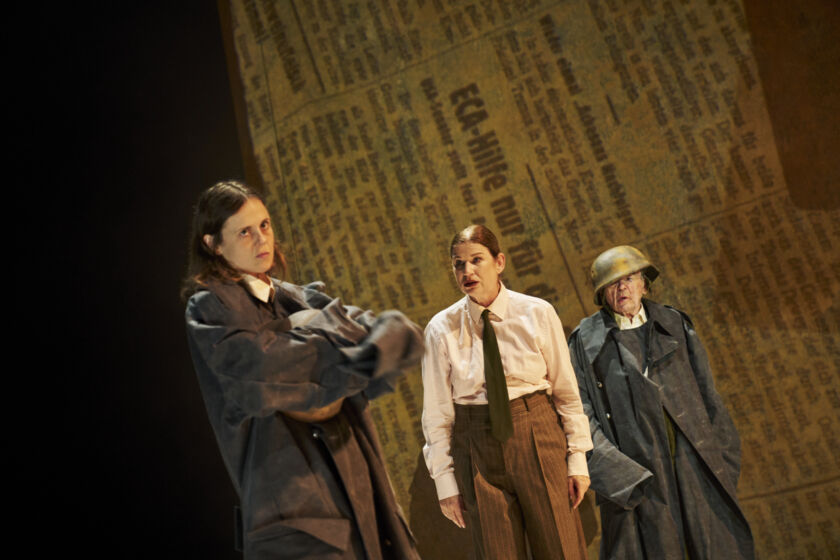The Last Days of Mankind
Karl Kraus’ play Die letzten Tage der Menschheit is not only an indictment of war, but also a painful analysis of human nature. In conversation, the director Dušan David Pařízek offers insights into his considerations in working with this material.


The Last Days of Mankind (Die letzten Tage der Menschheit) deals with the horrors of World War I. The author Karl Kraus wrote the work, which contains more than 200 scenes, between 1915 and 1922. What does this text tell us today?
Dušan David Pařízek: Kraus hunts for the causes of World War I and traces its development. However, he is not merely interested in contemporary history. Kraus seeks the root of evil, in the shadows, between the words. Thus, one of his central issues is language as an instrument of power, the degeneration of language into mere phrases, a means serving demagogy and stultification. He also depicts people who only know war through the reports of others, which makes them all the more susceptible to horror stories from the frontline. The political crisis is thereby revealed as the moral dilemma of a public confronted with violence, which is ready for violence as a consequence. It is the analysis of a society falling apart – welcome to the year 2025.
The text was written as a “drama for reading”. Due to its volume and form, it was long considered “unperformable”. You are developing your own stage version. Which aspects are important to you?
Apart from Kraus‘ warnings against the abuse of language, it’s his rage at politics, media and the war. In order to transpose this to our own times, one must look for character profiles enabling us to intensify the narrative. My goal is to create three large dramaturgical contexts: the drama of politicians and press, the potential for conflict in a society driven by patriotism which misinterprets the signs of the times, and, as a result of all that, the swansong of a cultural scene that tries to contain war through art.
Are you planning to create references between nationalism and right-wing populism and our current time in your production?
Some analogies cannot be avoided. Today, violations of the freedom of opinion, absurd reinterpretations of history and alliances between the media and the political executive branch can be found everywhere you look. The loss of values and standards goes hand in hand with the deterioration of language. Kraus shows this, he offers ample material to create references to our time.
Karl Kraus wrote the piece as a kind of reckoning with his contemporaries, who were susceptible to populism. Which parallels do you see with society today? What would you wish for from society?
War brings fear, and fear wins elections – and fear then governs. Major issues of our time, such as climate change, gender justice, social issues or migration, recede before it. Or they are purposefully linked to danger, social insecurity or financial losses by populists and their phraseology. And many people fall for this, hoping for solutions that are too simple. I wish that 140 million Russians would not just forget history. I wish we all would not just forget history.
In the piece, the characteristic thing about the dialogues is the fact that Karl Kraus drew them from documented street scenes and events. What consequences will this have for the production?
Kraus is able to focus our attention on details that seem irrelevant. He is not looking for the one, great metaphysical evil. He shows that political world events and war cannot be blamed on a few powerful people alone, but also on ordinary people and their base motives. To make that palpable, using dialects or local colour or atavisms – not only Austrian ones – might be a stylistically decisive factor in our work.
In some European countries, populist governments are already trying to influence cultural policy in their interests. What gives you hope in these times?
I see the pressure under which my colleagues at the Slovak National Theatre in Bratislava have been working for months, how cultivated and professional they are, despite being exposed to attacks from the government which are homophobic, nationalistic, pro-Russian, anti-European, personal etc. I am deeply impressed by the confident attitude of the director of drama, Miriam Kičiňová, and the ensemble. Every performance there is a plea for the meaningfulness of theatrical work. And the decisive thing is that the audience reacts, at eye level, and accepts these issues. The arts can create a forum. That is reason to hope.
Interview: Lena Wontorra
First published in the Festival insert of Salzburger Nachrichten
